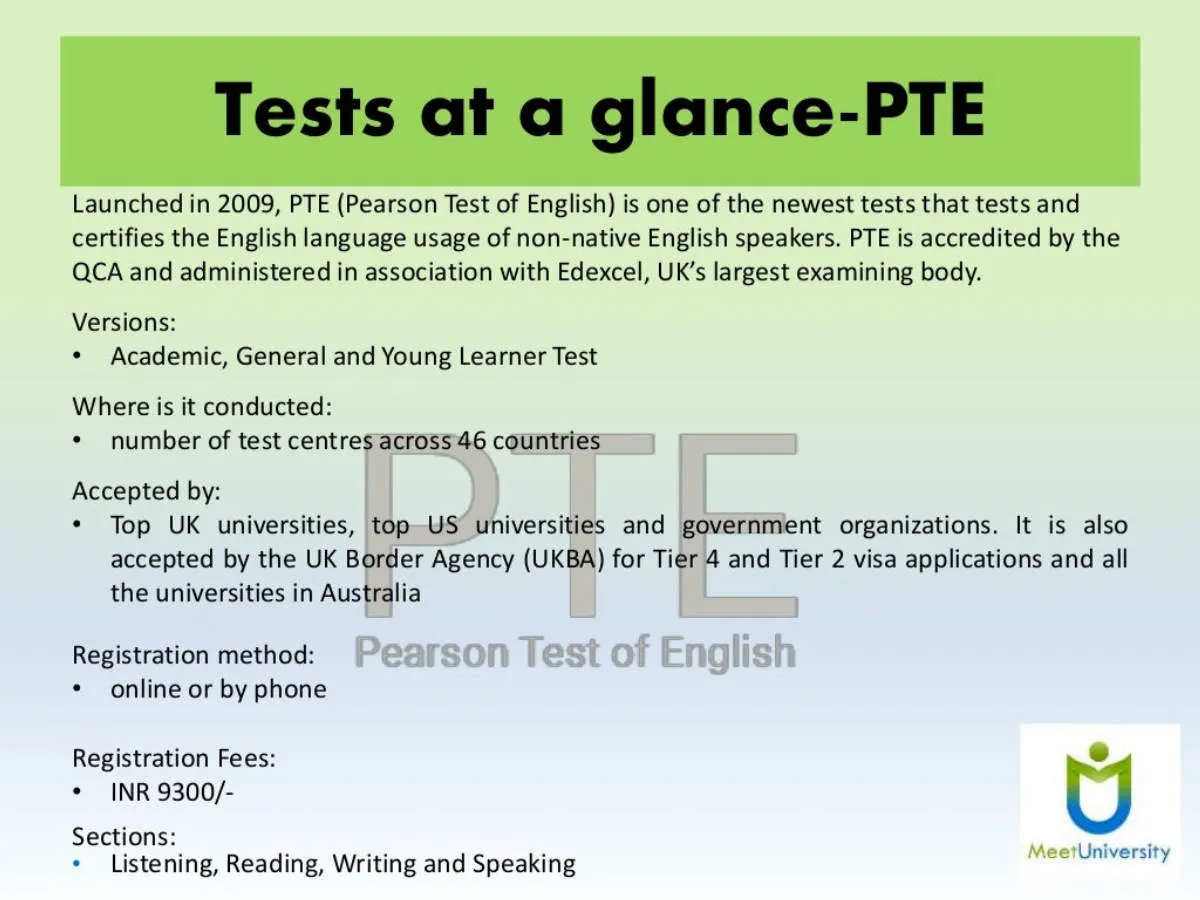Are you planning to study or work in Canada? Preparing for English proficiency tests such as IELTS and TOEFL is crucial. In this article, we will provide you with valuable tips to help you ace these tests and improve your chances of success in Canada.
Understanding the Test Formats and Requirements
Preparing for English Proficiency Tests: IELTS & TOEFL Tips for Canada
English proficiency tests are a crucial requirement for individuals planning to study or work in Canada. The two most common tests accepted by Canadian institutions and organizations are the International English Language Testing System (IELTS) and the Test of English as a Foreign Language (TOEFL). Understanding the test formats and requirements is essential for achieving your desired scores.
IELTS:
IELTS assesses the test taker’s English language skills in four key areas: Listening, Reading, Writing, and Speaking. The test is divided into Academic and General Training modules. The Academic module is suitable for individuals applying for higher education programs, while the General Training module is designed for immigration purposes or work-related training.
The Listening and Speaking sections are the same for both modules, whereas the Reading and Writing sections differ. The Listening section comprises four recordings, while the Reading section consists of three passages with a variety of question types. In the Writing section, test takers are required to complete two tasks, such as writing an essay or a letter.
TOEFL:
TOEFL evaluates the test taker’s ability to use and understand English at the university level. The test is administered in two formats: the internet-based test (iBT) and the paper-based test (PBT). The iBT is the most common format and is widely accepted by Canadian institutions.
The iBT assesses the four language skills in a structured manner. The Reading section measures comprehension through reading passages, while the Listening section evaluates understanding through lectures and conversations. The Speaking section requires test takers to express their opinions on familiar topics, and the Writing section involves writing responses based on reading and listening tasks.
Preparation Tips:
1. Familiarize yourself with the test formats and requirements of the IELTS or TOEFL, depending on your purpose.
2. Practice mock tests to become comfortable with the time limits and question types.
3. Improve your English language skills by reading English books, watching English movies, and engaging in conversations with native speakers.
4. Take advantage of online resources and preparatory courses designed specifically for IELTS or TOEFL.
5. Develop a study schedule and allocate sufficient time for each test component.
6. Seek feedback from English language tutors or instructors to identify areas for improvement.
Effective Strategies for Improving Your Listening Skills

Listening skills play a crucial role in English proficiency tests such as IELTS and TOEFL, especially for those aiming to study in Canada. To perform well in these tests, it is essential to enhance your ability to comprehend spoken English. Here are some effective strategies to boost your listening skills:
1. Practice Active Listening
Engage fully in the listening exercises by focusing on the context, tone, and key information. Actively listen to podcasts, audiobooks, or news broadcasts in English to improve your ability to understand different accents and speech patterns.
2. Improve Your Vocabulary
Expand your vocabulary to comprehend a wider range of words and phrases. Regularly expose yourself to English-language materials, such as books, movies, and TV shows, to familiarize yourself with various terminology and idiomatic expressions.
3. Take Practice Tests
Familiarize yourself with the format and question types of English proficiency tests like IELTS and TOEFL. Take advantage of online resources that offer sample tests and timed practice sessions. These will help you develop the necessary skills to navigate through different tasks effectively.
4. Focus on Note-Taking Skills
Develop strong note-taking techniques to retain essential information during listening exercises. Practice summarizing main points, keywords, and supporting details while listening to lectures, podcasts, or recordings. This will enable you to review and understand the content more effectively.
5. Utilize English Language Resources
Make use of various resources designed specifically to enhance listening skills. Online platforms, language learning apps, and websites provide listening exercises, audio materials, and interactive activities to help you practice comprehending English in different contexts.
6. Seek Opportunities for Conversation
Engage in conversations with native English speakers whenever possible. Join language exchange programs, take part in speaking clubs, or find language partners to improve your listening skills in a real-life setting.
7. Review and Analyze Your Mistakes
Regularly review the listening exercises you have completed and analyze your mistakes. Identify areas where you struggled and focus on improving those specific skills. Keep track of your progress to monitor your development over time.
By incorporating these effective strategies into your study routine, you can significantly enhance your listening skills and increase your chances of success in English proficiency tests like IELTS and TOEFL. Remember, consistent practice and dedication are key to achieving your desired results.
Mastering the Art of Academic Writing in English
Preparing for English Proficiency Tests: IELTS & TOEFL Tips for Canada
When it comes to studying abroad in a country like Canada, having a strong command of the English language is essential. English proficiency tests, such as the International English Language Testing System (IELTS) and the Test of English as a Foreign Language (TOEFL), are commonly required by Canadian universities and institutions for admission. These tests assess your ability to communicate effectively in English and can significantly impact your chances of acceptance.
To succeed in these tests, it is crucial to master academic writing in English. Here are some tips that will help you prepare:
-
Familiarize Yourself with the Test Format
Before diving into preparation, it is important to understand the structure and requirements of the IELTS and TOEFL tests. Familiarize yourself with the different sections, such as writing, reading, listening, and speaking, and the specific tasks you’ll be required to complete.
-
Expand Your Vocabulary
An extensive vocabulary will significantly enhance your writing skills. Make it a habit to learn new words every day and understand their usage in different contexts. This will enable you to express your ideas more effectively and avoid repetition.
-
Practice Essay Writing
The writing section of these proficiency tests often includes an essay task. Allocate time for practice essay writing, covering a variety of topics. Focus on structuring your essays with a clear introduction, body paragraphs with supporting evidence, and a concise conclusion.
-
Develop Strong Grammar and Sentence Structure
Proper grammar usage and sentence structure are vital components of academic writing. Dedicate time to study grammar rules and practice constructing well-formed sentences. Ensure your ideas flow logically and coherently throughout your writing.
-
Read Academic Literature
Expose yourself to academic articles and publications written in English. This will help you become familiar with the style, tone, and structure commonly found in academic writing. Pay attention to how arguments are presented and supported, and the use of formal language.
-
Seek Feedback and Proofread
Share your writing with others, preferably native English speakers or experienced English tutors. Their feedback will help you identify areas for improvement. Additionally, proofread your work for spelling, punctuation, and grammatical errors. This step ensures your writing is polished and error-free.
By mastering the art of academic writing in English, you will greatly increase your chances of success in the IELTS and TOEFL tests. Remember, consistent practice, attention to detail, and seeking feedback are the keys to improving your English proficiency.
Preparing for the Speaking Section: Fluency and Pronunciation Tips
When it comes to preparing for English proficiency tests like IELTS and TOEFL, the speaking section can often be the most challenging. Building fluency and improving pronunciation are crucial factors in achieving a high score. Here are some useful tips to help you excel in this section:
1. Practice Speaking Regularly
Consistent practice is key to developing fluency. Create opportunities to speak in English as much as possible. Find conversational partners, join language exchange groups, or take part in speaking classes. The more you practice speaking, the more comfortable and confident you will become.
2. Focus on Pronunciation
Pronunciation plays a significant role in effective communication. Pay attention to the sounds of English and practice correct pronunciation. Record yourself speaking and listen for any errors or areas that need improvement. Consider taking pronunciation classes or using pronunciation apps to enhance your skills.
3. Expand Vocabulary
A wide range of vocabulary will not only enhance your speaking skills but also enable you to express yourself more precisely. Read extensively, engage in conversations on various topics, and make a habit of learning new words every day. Use vocabulary lists and flashcards to consolidate your knowledge.
4. Work on Fluency
Fluency involves speaking with a natural pace, flow, and rhythm. To improve fluency, practice speaking at a steady pace. Avoid hesitations or interruptions and try to speak without translating from your native language. Work on connecting your ideas smoothly and using appropriate phrases and expressions.
5. Familiarize Yourself with Test Formats
Get acquainted with the different sections and question formats of the IELTS and TOEFL speaking tests. Familiarity with the test structure will help you understand what is expected and allow you to strategize your responses effectively. Take practice tests to simulate real exam conditions and identify areas for improvement.
6. Seek Feedback
Regular feedback is essential to monitor your progress and identify areas for improvement. Ask an experienced English speaker or a language teacher to assess your speaking skills. Pay attention to their suggestions and work on rectifying your weaknesses.
By following these tips and practicing consistently, you can boost your fluency and improve your pronunciation in preparation for the speaking section of English proficiency tests like IELTS and TOEFL. Remember, the more you practice, the more confident you will become in expressing yourself effectively in English.
Conclusion
In conclusion, preparing for English proficiency tests such as IELTS and TOEFL is crucial for those planning to study or work in Canada. By following these tips and strategies, test-takers can enhance their language skills, build confidence, and improve their chances of achieving the desired scores. Remember to practice regularly, familiarize yourself with the test format, and seek professional guidance if needed. Good luck on your journey to success!
